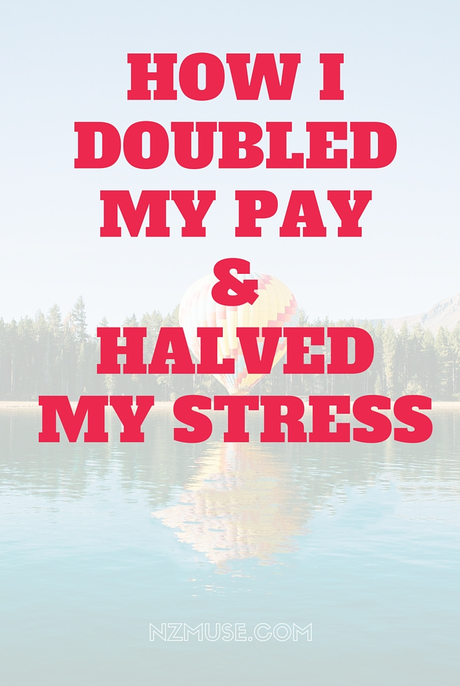
Since graduating with my degree, I've managed to double my pay. Most of that growth has happened in the past couple of years, thanks to two strategic job moves. Here's the process I went through.
I realised it was time for a change
It's a long running truism that you don't go into journalism for the pay. Young, energetic and idealistic, we rushed into the trenches with shining eyes and grand notions.
It's thankless in those trenches. The work never ends. You're constantly being forced to do more with less. Media organisations keep cutting back; the whole industry is struggling to find a sustainable model.
I loved my job, but it was tough. When I took a six-month sabbatical, the person covering for me quit after just a few weeks. For what it's worth, I'd always worked at that pace and this was a bit of an awakening. It really did get me wondering what a normal workload outside of publishing might feel like.
When I started thinking about my next move, I looked around and saw no opportunities in journalism that excited me. Forget advertised positions; even just considering what roles existed and were currently filled, there was nothing that spiked my interest. Nothing I wanted to aspire towards.
And just as importantly, I saw little opportunity to increase my income. I was getting by fine, but in order to get ahead, or to afford a family or a halfway decent place to call home, I had to make a change.
I assessed my transferable skills
I took the skills I had and started applying to jobs outside of publishing. The decline of journalism has led to lots of new opportunities in all kinds of companies - as content marketing grows, editorial talent is in demand on the brand side. (The typical trajectory for ex-journalists is to head into PR or communications, but you could not pay me enough to do media relations.) They need people who can write, understand their audience, and manage digital channels.
I researched salaries as best as I could
I talked to people. I looked at salary surveys. I spent time on TradeMe and Seek just playing around with the filters and seeing how the results changed when I altered the salary band in my search parameters. (This works for real estate listings, too. In both cases you typically won't see a number listed outright but you can use the filters to see when listings disappear from the results and make an assumption about the range based on that.)
I sucked it up and negotiated
Full disclosure: it took me until my fourth job to actually negotiate for the first time.
In Job 1 I was on union pay rates. My hourly rate wasn't very high. But a few months into the job I accepted a change in duties that had me working weekend shifts. As a result, I actually took home something like 40% more than that every pay day unless I had a weekend off.
In Job 2 I was willing to effectively take a small pay cut for better hours, (though technically my actual base rate was higher).
In Job 3 - my first outside of journalism - I had every intention of negotiating. But the application form asked for a salary range and I was afraid to leave it blank. They offered me more than the figure I wrote down, and more than I would have even dared to expect, to the tune of a 25% effective increase. And so, I didn't negotiate further. But this was a real eye opener. There was money to be made! My skills were valuable in the marketing world!
In Job 4 I negotiated and received the exact salary I wanted - a 25% increase again. Boom.
In hindsight
Life after journalism is sweet. I've been picky about the organisations I apply to and the kind of work I want to do - and as as a result I find even more meaning in my job now. Plus I'm better resourced to do it (though of course, as is the way, there's usually still too many ideas and too much to do compared to actual capacity). I've been able to save more and start to build wealth. And that is incredibly important to me.
